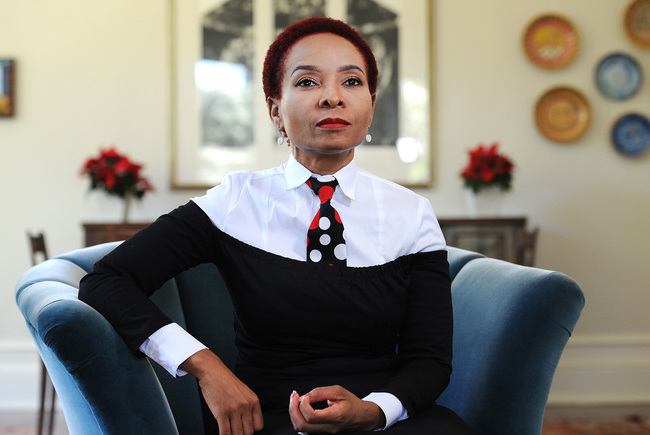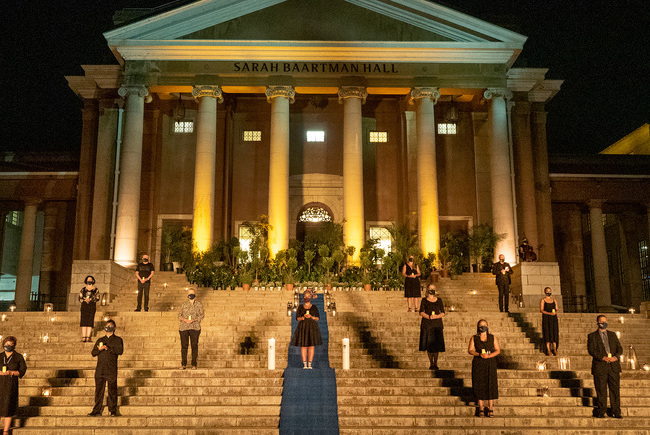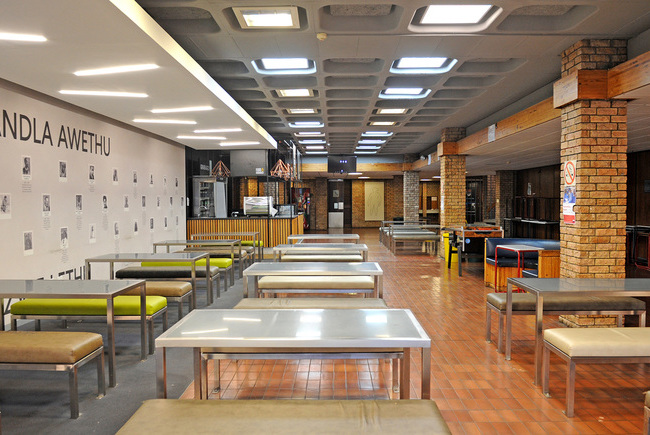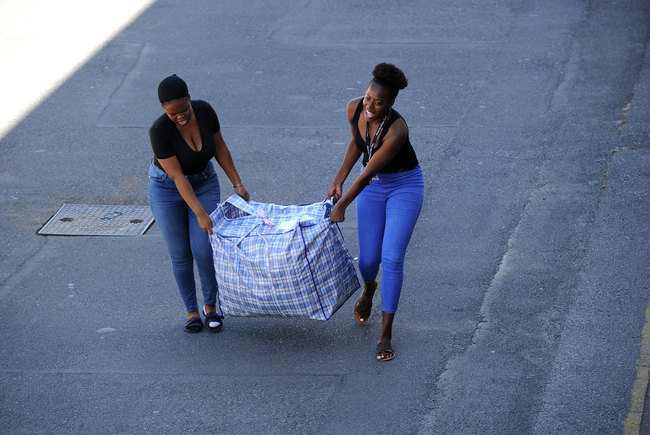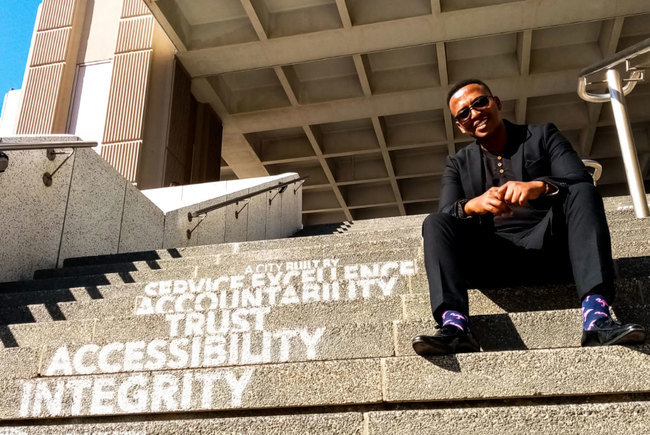Residence Life’s student peer-to-peer study pilot launched
10 June 2020 | Story Helen Swingler. Photo Anne Grey. Read time 5 min.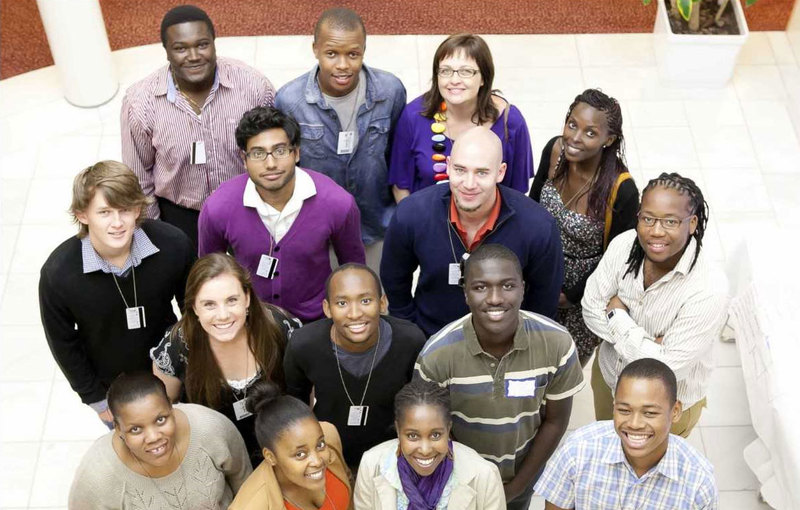
The University of Cape Town’s (UCT) Residence Life Division has launched its pilot Study Buddy online student peer programme to support residence students who are now learning and studying off-site as a result of the COVID-19 pandemic.
The programme is one of several UCT initiatives implemented to assist residence students in adjusting to “the new normal” and keep up with their academic schedule. The idea is that students pair up with a peer within the residence system for daily or weekly checks on each other’s learning goals and to encourage each other – and hold each other accountable.
The shift to online learning has created specific challenges for residence students, said Sean Abrahams, Residence Life Division senior coordinator for learning and innovation. “We’ve recognised that we need innovative ways to reinforce and support self-directed and remote learning.”
Abrahams said that students are in the process of pairing up randomly. They are introduced to their study buddy via email and prompts have been provided to identify key points study buddies can discuss, such as what they are studying, how often they’d like to interact, identifying their goals and obstacles and sharing their weekly learning.
“It doesn’t matter if students are not in the same faculty, as the programme differs from mentoring or tutoring. The aim is that students share and engage on their weekly learning or academic goals.”
All participants (425 residence students have joined thus far) are being added to a new Study Buddy Vula tab, which will provide regular prompts and resources. To sign up, students can simply click ‘Yes’ and include their student number. After signing up, they will receive an automated message to say that they could expect further details about how the programme works.
“Some students find value in connecting with a peer simply to reach a learning goal.”
The pilot won’t duplicate the residence mentoring and tutoring programmes or faculty interventions already in place, said Abrahams. “Not all residence students want a mentor or tutor and not all courses are catered for by the residence tutors’ network. There are also limited numbers of residence tutors and mentors. Some students find value in connecting with a peer simply to reach a learning goal.”
Encourage and support
Beyond his professional focus, Abrahams has a research and personal interest in examining, critiquing and applying empirical interventions from positive psychology to support students. His master’s in education at UCT examined the psychology of hope in a residence academic context.
Though based at UCT, he is the current International Positive Psychology Association regional representative (Positive Education Division) for Africa. In UCT’s Residence Life Division, aspects of his work involve a positive psychology practitioner-based approach. In the higher education and residence contexts, his interests and research include areas such as hope, grit, flourishing and inspiration.
The Study Buddy pilot uses the wish, outcome, obstacle, plan (WOOP) framework already in place in residences, which has been adopted by a high number of students.
Abrahams explained, “The application of WOOP within the Study Buddy programme asks each peer study buddy to identify an academic goal for the day or week, the outcome, obstacles and plans to overcome that obstacle. Study buddies will share and reflect on their WOOPs and encourage one another to reach their goals.”
Initial feedback from the 425 participants will help to tailor the programme’s guidelines. Preliminary feedback indicates that students prefer to communicate via text-based social media platforms and not via emails or video calls.
The programme will be evaluated at the end of term two.
Supporting possibilities and potential
With the COVID-19 pandemic having changed the parameters of student support and residence life, Abrahams believes that student support should encourage individuals to explore their possibilities beyond their academic goals.
Writing in the student division of the May 2019 International Positive Psychology Association newsletter, Abrahams explored his definition of a student as “an individual who defines, discovers and develops their own potential”.
“The word potential directly translates as ‘possibility’. To become a student of potential is to become a student of possibilities – and do that deliberately and actively. This involves three steps: defining your possibilities, discovering those possibilities and developing these through a lifelong learning feedback loop,” he said.
“This is the work we must do.”
 This work is licensed under a Creative Commons Attribution-NoDerivatives 4.0 International License.
This work is licensed under a Creative Commons Attribution-NoDerivatives 4.0 International License.
Please view the republishing articles page for more information.
UCT’s response to COVID-19 in 2021
COVID-19 is a global pandemic that caused President Cyril Ramaphosa to declare a national disaster in South Africa on 15 March 2020 and to implement a national lockdown from 26 March 2020.
UCT is taking the threat of infection in our university community extremely seriously, and this page will be updated regularly with the latest COVID-19 information. Please note that the information on this page is subject to change depending on current lockdown regulations.
Commemorating a year of COVID-19
At midnight on 26 March 2020, South African went into the first nationwide hard lockdown. A year later, we remember those who have died and those who have been affected by COVID-19, as well as the pandemic’s effects across society and campus. We are especially grateful for the front-line health workers who have done so much for so many.
Frequently asked questions
In an email to the UCT community, Vice-Chancellor Professor Mamokgethi Phakeng said:
“COVID-19, caused by the virus SARS-CoV-2, is a rapidly changing epidemic. [...] Information [...] will be updated as and when new information becomes available.”
We are continuing to monitor the situation and we will be updating the UCT community regularly – as and when there are further updates. If you are concerned or need more information, students can contact the Student Wellness Service on 021 650 5620 or 021 650 1271 (after hours), while staff can contact 021 650 5685.





